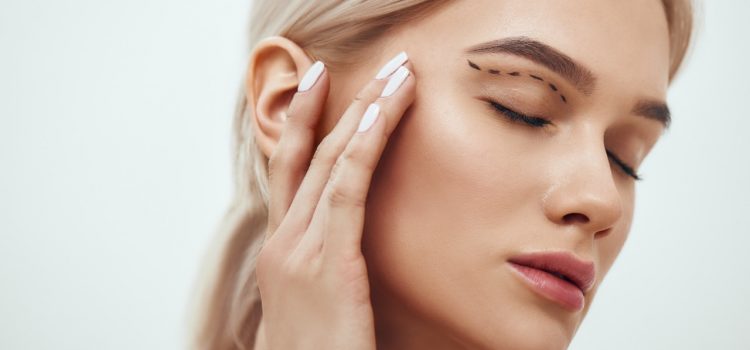
Preparing for any surgery can be a little nerve-wracking, but it doesn’t have to be. Dr. Tanenbaum has been performing ophthalmic and reconstructive surgery for over 25 years, so you can rest assured you’re in good hands. Still, you may be wondering what to expect before and after blepharoplasty. There are multiple types of eyelid surgeries, but the pre and post-op recommendations are quite similar for all.
Are You a Candidate for Blepharoplasty?
Your first consultation with Dr. Tanenbaum involves a thorough examination of your eyes’ form and function. After evaluating the results, a form of eyelid surgery will be recommended based on your desired results.
WHEN BLEPHAROPLASTY IS RIGHT FOR YOU
Due to the natural effects of aging, or perhaps an injury, you may have concerns about the skin around your eyes. Here’s what makes a good candidate for blepharoplasty:
- Droopy upper eyelids
- Puffy eyes
- Saggy lower eyelids
- Wrinkles caused by excessive skin around the eyes
Some patients also pursue eyelid surgery to change the look of their eyelids to create a crease where there isn’t one or reduce the hooded look of a heavy upper lid. Whatever the case, it will be discussed with Dr. Tanenbaum during consultation.
How to Prepare for Blepharoplasty
Dr. Tanenbaum performs almost all of his blepharoplasty procedures as outpatient surgeries. This means you need to arrange for transportation to and from your surgery since you will not be staying overnight at a hospital. You will most likely be instructed to refrain from eating or drinking within 12 hours of your procedure, so be sure to ask about those specifics when scheduling your appointment, and plan accordingly.
OTHER TIPS FOR PRE-OP
1. Refrain from smoking beginning at least two weeks prior to your operation. Nicotine and tobacco are known to delay your body’s healing capabilities, which could result in a less comfortable post-op, and more visible scarring.
2. Stay out of the sun for the two weeks leading up to your eyelid surgery. When outside, wear protective clothing to reduce sun exposure, as well as SPF 50 (this is a good practice regardless of whether or not you’re undergoing surgery).
3. Avoid using the following medicines and supplements for two weeks pre-op:
- Aspirin
- Ibuprofen (Advil or Motrin)
- Naproxen (Aleve)
- Vitamin E
If you have any questions about current medications or vitamins you’re taking, and how they will affect or be affected by your blepharoplasty, please don’t hesitate to ask about them in your consultations.
4. Don’t wear jewelry, makeup, or contact lenses on surgery day.
Of course, if you have any other concerns regarding how to prepare for eyelid surgery, don’t hesitate to ask.
What to Expect in Recovery
Since most blepharoplasty procedures only involve local anesthesia, you will be awake immediately following your surgery. If possible, arrange to have someone stay with you for the first 24 hours after you’re brought home. This will allow you the opportunity to get started right away on your one-to-two-week recovery period.
OTHER TIPS FOR POST-OP
1. Expect some swelling or bruising around the eyes and cheeks.
2. Use frozen gauze pads as ice packs on your face for at least the first 48 hours post-op.
3. Try to keep your head elevated to reduce swelling in your face.
4. Keep the incisions clean as directed by your personalized post-op instructions.
5. Do not wear contact lenses for at least two weeks following your blepharoplasty.
6. Refrain from aerobic activities for the first two to three weeks post-op. Taking walks at a slow pace within a few days should be fine unless otherwise instructed.
7. Continue to stay out of the sun, limiting exposure for up to six weeks post-op. Always wear sunscreen with SPF 50, and wear protective clothing such as sunglasses and hats to shield your face.
8. You can usually resume wearing makeup within a week of your surgery date.
If there is anything unique to your situation that requires different care than some of the tips listed above, rest assured that you will receive written instructions on how best to care for yourself post-op.
In general, patients are typically ready to resume their normal day-to-day after two weeks of recovery time. Two weeks of convalescing is a small price to pay to have a refreshed pair of eyes looking back at you in the mirror. Don’t delay a procedure that will improve both your vision and your self-confidence. Contact Myron Tanenbaum’s office by calling (305) 273-5353 or filling out an online form HERE.
